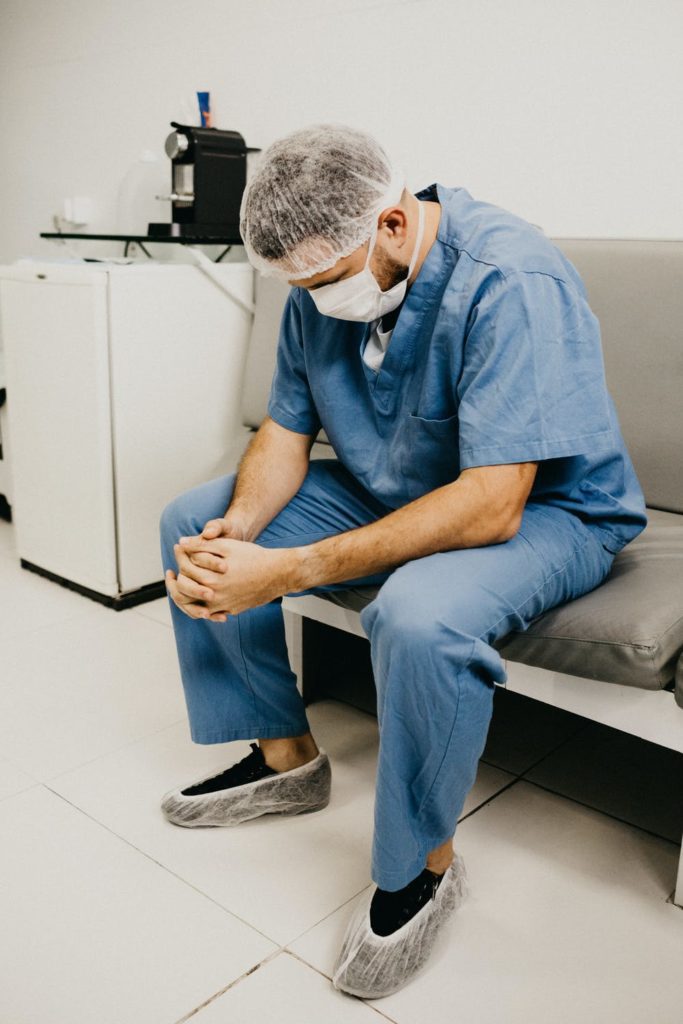Many industries are facing staff shortages right now, and our long-term care industry is no different. If our local favorite restaurant is short-staffed, we may have to wait a bit longer to be seated for our dinner. The shortage in our industry, however, has a much greater impact. It means increasingly unsustainable working conditions for our staff and lower quality of care for our residents.
This issue is multifaceted, and the approach to begin to resolve it must also be a multi-level solution.
In a survey of 616 nursing homes conducted by AHCA, 94% said they are experiencing staffing shortages. An analysis published in the Washington Post showed nursing home work is one of the most dangerous jobs in the United States.
I recently read an article in Time magazine, Nursing Home COVID-19 Vaccine Mandates Protect The Most Vulnerable, But Pose a Hidden Threat to Residents, discussing the staff shortages and the vaccine mandate. While it is true that some employees are leaving due to nursing home operators mandating the vaccine, I honestly don’t see it as that simple.
While this mandate will add to staff shortages, I feel the bigger issue is the healthcare workers feeling cared for by their employer. An employee must feel that their employer cares about their health, welfare, and protection, and if these basic needs aren’t met in the first place, a blanket mandate is often the last straw.
The article describes one LNA (licensed nursing aide) where this was the case. Not being able to provide the care she knew her residents required because they were short-staffed led to her becoming depressed. She was diagnosed with hypertension due to stress, and even though she had reservations about getting the shot, she said if she felt taken care of and respected at her job, she probably would have gotten vaccinated.
“If you’re at a place of work, and you feel appreciated and respected, and feel like people care about you and your well-being, that initiates someone to want to stay at work,” she said. “This place did not do that for me.”
I feel the vaccine mandate is necessary, but parallel to this we must address the staffing issues. The two issues are intrinsically connected. This industry is already a very difficult place to work and adding the chaos of a pandemic takes it to an entirely different level.
It sounds simple to say one way to combat these shortages is for operators to offer better pay and benefits. 81% of the nursing homes surveyed by AHCA said that higher reimbursement from payers is necessary to do this. This is an example of the many layers that this issue involves. We are now talking about the chronic underfunding of Medicaid for nursing homes, an issue itself that involves many smaller sub-issues. The more we try and address a surface issue, the more issues we uncover along the way. Therefore, the approach needs to be looked at in a “big picture” way. These issues are all connected in a messy, convoluted web, and they must be addressed in an organized, multi-tiered approach that looks at the system of causes and outcomes as a whole, rather than looking at the issues individually.
It all plays out like this: (Stay with me here) in order to provide the safest environment for our residents, we need to provide the best environment for the staff. To do so, we need to increase pay and benefits, so they are not severely overworked and understaffed. To do this, we need reform at the level of lawmakers to not only look at the costs of what reimbursement covers, but to change the way the industry must spend these reimbursements. Eliminate any self-dealing that may occur, establish cost category reimbursement methods that require facilities to spend on specific things like staff and residents, and enact direct care ratios, allowing specific portions of reimbursement to go directly toward the well-being of residents.
The bottom line is this – If staff are happy and able to do their job effectively, they can provide the best level of care to our residents. Anything less than this scenario and everything begins to fall apart. Fast.

